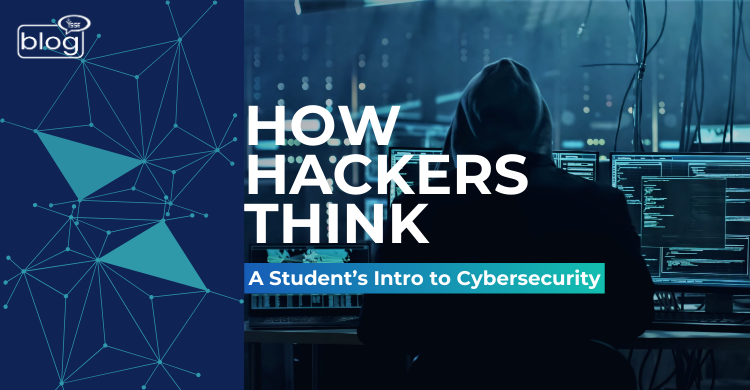Cybersecurity is one of the most critical fields in the modern digital age. We learn and hear every day about data breaches, ransomware attacks, and security vulnerabilities in flagship apps. Behind most of these incidents lies a powerful force: the hacker’s mind.
If you want to become a cybersecurity professional, your lesson number one, and most importantly, is this: you must learn to think like a hacker.
Why Learn About the Hacker Mindset?
The majority of new users believe that security is merely installing anti-virus software or a firewall. That’s just the beginning. In order to truly harden a system, you need to consider how an attack would arrive, and that requires getting into the mind of the attacker.
Hackers don’t follow rules. They look for loopholes in them. They aren’t bound by what a system is designed to do; they look for what it can do. This line of thinking makes them formidable and creative. However, when ethical hackers and cybersecurity professionals apply the same line of thinking (but for benevolent reasons), they become powerful defenders.
Hackers Ask “What If ?”
The hacker’s path starts with curiosity. Instead of simply assuming that a system is secure, they ask themselves:
- What if I enter a very, very long password?
- Can I look at this page without logging in?
- What if I look at the website code?
This curious nature drives them to go where most users don’t, and that’s exactly where vulnerabilities lie. As a future cybersecurity professional, you must develop this curiosity and never take a system at face value.
Hunting for Weaknesses
Weaknesses are what hackers look for that others overlook. These are:
Unpatched software: Older versions of software are riddled with known vulnerabilities.
Weak passwords: Users still use “123456” or “password” more than you would think.
Misconfigured systems: Such as having admin panels facing the public internet.
Web application vulnerabilities: A hacker can do something such as SQL injection or cross-site scripting (XSS).
A single vulnerability is all it takes. As a defender, your role is to act like an attacker, find those vulnerabilities first, and patch them.
Tools of the Trade
You may already know the tools named Nmap, Wireshark, or Burp Suite. To scan networks, packet sniff, and try to exploit security vulnerabilities, hackers utilize them. Tools will not make someone a hacker, but being aware of them does. For instance:
- Nmap can detect open ports and live services.
- Wireshark helps with traffic analysis and the detection of sensitive data in transit.
- Burp Suite allows hackers to intercept and tamper with web requests.
Learning about how they work will get you thinking more logically when it comes to security. The same devices that hackers use to bypass something can be utilized to protect them.
Creativity Is Key
Hacking is not technology-focused; it’s art. Take an upload feature on a site that enables users to add pictures. A hacker might try to upload a camouflaged.php file containing malware. Had the developer not correctly validated the file types, the attacker merely found a backdoor.
Hackers often don’t find bugs; they create unexpected paths using legitimate features. You’ll need that same creative problem-solving approach to stay ahead in cybersecurity.
People Are the Weakest Link
No matter how secure a system is, it can still fall to one simple trick, that is, social engineering. Hackers often target humans, not hardware. The way they target:
- Phishing: Tricking someone into clicking a fake login page.
- Pretexting: Pretending to be someone trustworthy (like IT support).
- Shoulder surfing: Observing someone enter their password.
This indicates that cybersecurity is not merely coding and a firewall; it’s also psychology, awareness, and education. Always ask: “Can this be taken advantage of by human mistake?”
How to Start Thinking Like a Hacker (Legally !)
As a learner of cyber-security, here are some ways to develop a hacker mindset safely:
- Build a virtual lab: Use software like Kali Linux or sites like TryHackMe or Hack The Box.
- Practice against vulnerable apps: Try DVWA (Damn Vulnerable Web Application) to make practice attacks.
- Learn networking and Linux fundamentals: Understanding how networks communicate with each other is key.
- Read YouTube channels and ethical hacker blogs: The community will share knowledge with you.
Stay up to date with CVEs and real-world breaches: Understand what is happening in the wild.
Hackish thinking isn’t about causing mischief; it’s about being ahead of those who do. People who comprehend how hackers think will be more capable of defending networks, teaching end users, and building stronger defenses.
Next time you sign onto a website or install an application, try the following thought experiment: If I were a hacker, how would I breach this? That is all it takes to launch a career in cyber security and become a digital guardian indispensable to the digital universe.
To read these types of blogs, visit here.
Writer
Umme Farhana Sumaiya
Intern, Content Writing Department
YSSE

